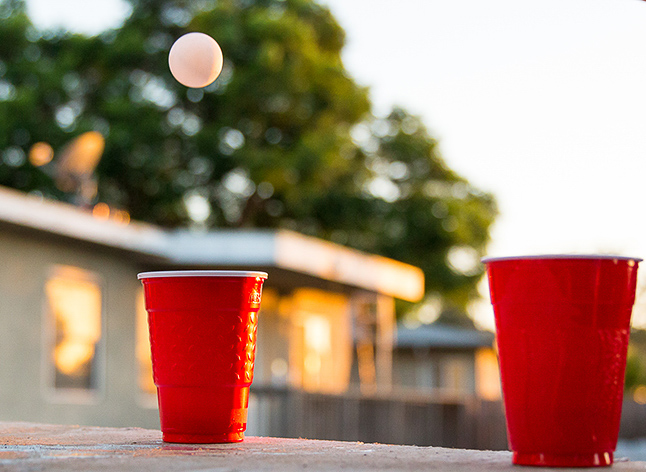San Diego State’s ban on partying for fraternities is expected to continue at least until fall 2018.
The Interfraternity Council’s current plan is to extend the moratorium through the summer and reevaluate it at the beginning of the new academic year, San Diego State spokesperson Cory Marshall said in an email.
After seven weeks without parties, some fraternity members said the self-imposed social moratorium granted them some much-needed time for reflection.
“I think the moratorium was definitely a good wake up call,” said a member of Alpha Epsilon Pi who spoke on condition of anonymity.
The Interfraternity Council placed its 15 fraternities under the social moratorium on March 10, prohibiting fraternities from hosting any events with alcohol at their chapter houses.
Six out of the 15 were placed under restrictions by the university due to allegations of policy violations.
Kinesiology freshman and Kappa Sigma member Vincent Boucher supports the social moratorium for the current situation, but hopes the council will be more considerate in the future of fraternities that have not broken the rules.
“With what’s going on at different schools right now, I think it’s smart what they did to put us on social moratorium,” Boucher said. “But, in the future, I hope that the IFC and the school, if anything does happen, will specifically deal with that fraternity just so that one incident at one fraternity doesn’t affect all of us as a whole.”
Over the years, a number of other universities have suspended Greek life completely from their campuses for numerous reasons. With this consideration in mind, the Alpha Epsilon Pi member said the social moratorium was a necessity.
“It sucks to not be able to party, but at the same time it was necessary,” the Alpha Epsilon Pi member said. “At the time that it happened, with the way everything was going, it was the best thing that could have happened for frats in general.”
Marketing freshman and Kappa Sigma member Evan Morris said that although the social moratorium has provided a good opportunity for reflection and unity amongst the fraternities, organizations that have not broken the rules should not be punished in the future.
Morris adds that he believes a lot of fraternities have opened their eyes to what their behavior should look like.
“The purpose of what this is supposed to do is being seen I think,” Morris said. “A lot of fraternities, to my knowledge, are meeting what they have to do.”
The Alpha Epsilon Pi member said they speculate the effects of the social moratorium will be lost in later generations.
“As the years go on and the next generation of freshmen and every next class comes to SDSU the older guys are going to keep that memory in the back of their head (of the social moratorium) and they’re not going to want to have that happen again,” they said. “But, at the same time, once everybody graduates that experienced it and there’s nobody in the chapter that had that experience, then that might be when it starts to fall off again.”
With SDSU’s expansive Greek community, Morris said this opportunity for unification will be essential to the continuation of Greek life.
“(The moratorium) has given us the opportunity to look at ourselves as one organization,” Morris said. “We’re all fraternities so I do think it helps in the (sense that it) unifies us.”









